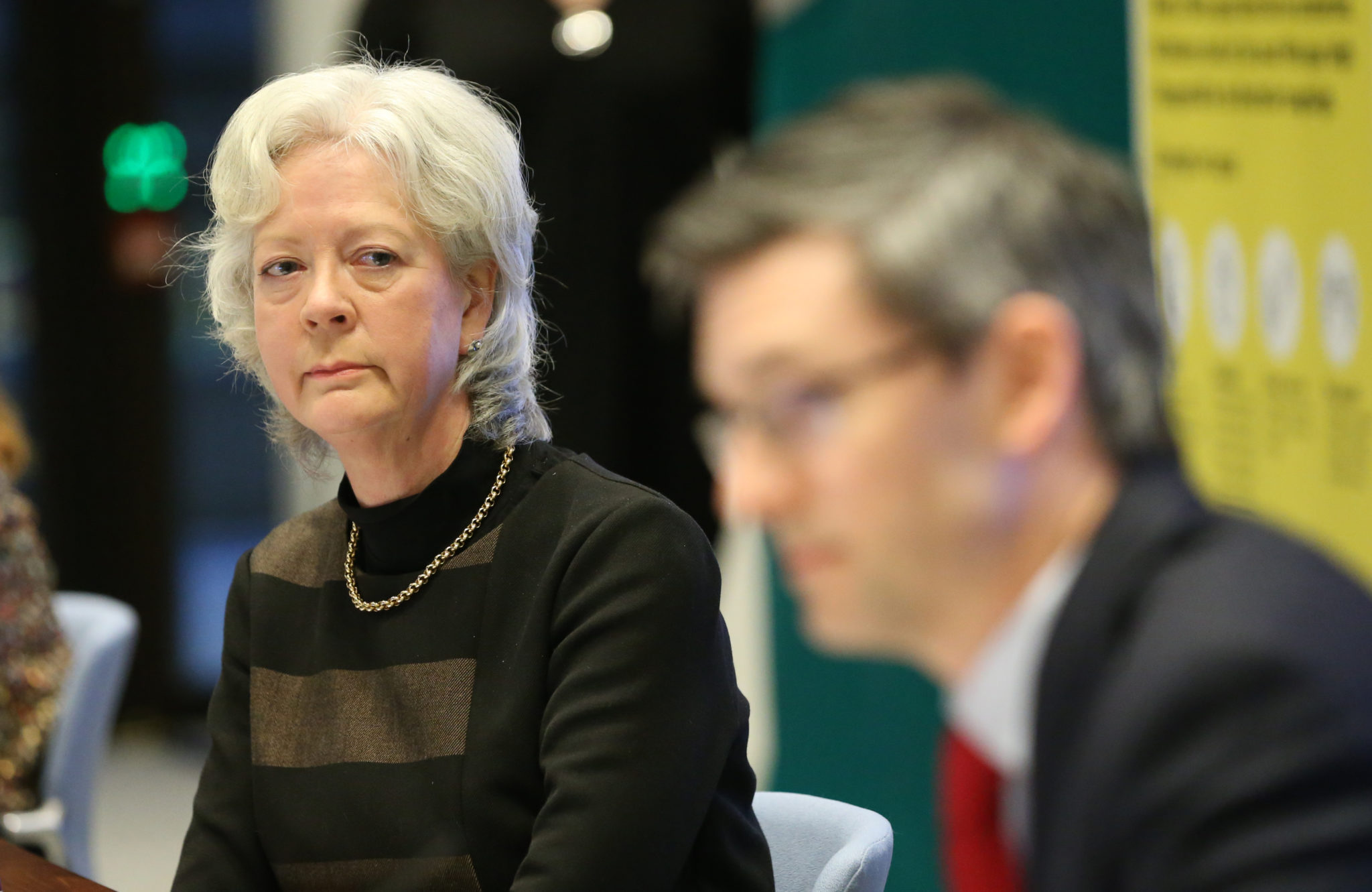Ireland is “literally a week or two away” from protecting the most vulnerable people in society from COVID, according to a DCU Professor of Immunology.
NPHET is meeting today to consider its advice on the next stage or reopening – with speculation that the return of indoor dining is now in doubt.
Indoor service in pubs and restaurants is due to resume on July 5th; however, there is growing concern in some quarters over rising levels of the Delta variant.
The Taoiseach yesterday confirmed that Cabinet would make a final decision early this week.
On Newstalk Breakfast this morning, DCU Immunology Professor Christine Loscher called for reopening to be delayed.
“My view is we are literally a week or two away from having the core goal of our vaccination programme achieved,” she said.
“That goal was to protect the vulnerable, those who would get sicker and those who would be at higher risk for severe illness and death.
“The core issue is that the data that came out last week from the HSE shows that, of the group of 60 to 69-year-olds, only 24% of them have had their second vaccine.
“While I understand completely that we need to start living with COVID, the one thing we need to have before we start living with COVID is to have people protected and they are the higher-risk people.
“At the moment, there is that gap of that 74% of that age cohort, which represents about 360,000 or 370,000 people around the country – they are the people who are at risk.”
While waiting 2 weeks to open might not have much effect on Delta case numbers, it will allow us to finish vaccinating our older/vulnerable cohorts and therefore lessen the impact of Delta. We can't stop Delta but we can lessen its impact @Independent_ie @NTBreakfast @IrishTimes
— Christine Loscher (@celoscher) June 28, 2021
She said the Delta variant has also increased the risk for younger people – noting that around half the cases detected here are in the 19 – 34 age group.
“While I absolutely agree that in a couple of weeks’ time, we should be saying to people, ‘you need to make your own personal choices about whether you go to a restaurant if you are fully vaccinated or not,’ at the moment, the people who work in that restaurant may not be vaccinated,” she said.
 Professor Karina Butler, Chair of National Immunisation Advisory Committee (NIAC) at the Department of Health, 12-04-2021. Image: Sasko Lazarov/RollingNews
Professor Karina Butler, Chair of National Immunisation Advisory Committee (NIAC) at the Department of Health, 12-04-2021. Image: Sasko Lazarov/RollingNewsThe National Immunisation Advisory Committee (NIAC) is also meeting today to consider changes to its recommendations on the use of the AstraZeneca and Johnson & Johnson vaccines.
Both jabs are currently only available to people aged 50 and over and there are concerns the country will be left with hundreds of thousands of unused doses if they are not made available to younger people.
Professor Loscher said both jabs should be rolled out to younger people as soon as possible – noting that the Delta variant has changed the balance of risk between rare side effects and the virus itself.
Ireland is the only country in Europe where indoor dining is prohibited.
The Irish Government has conceded we are an outlier.#indoordining5thJuly— Adrian Cummins 🇮🇪🇪🇺 (@adriancummins) June 28, 2021
“Younger people were included in the trial for Johnson & Johnson,” she said. “In fact, they made up two-thirds of people in the trial for Johnson & Johnson.
“I know there are issues around rare events such as blood clots. That is a risk. It is the same risk as if you get COVID. In fact, if you get COVID, your risk of a blood clot is three times higher so why not give young people the choice?
“We are going to have a surplus of AstraZeneca, we already have Johnson & Johnson we haven’t used and we are due to get more – so there is a way of plugging the gap for younger people as well.”
Vaccine
She said health officials now have two key targets in front of them – getting a second dose out to everyone in the 60 - 69 category and rolling out the vaccine to younger people.
“Young people are also in an at-risk category we can’t ignore,” she said.
“They work in the hospitality industry but also, most of our cases of Delta are in the younger age group and we are seeing that the chance of hospitalisation in unvaccinated age groups is twice what it was with the other variant we were dealing with up to now.
“So, we have to try and de-risk every single age group but I think the priority, always with the vaccination programme, we need to protect the older and the vulnerable and we are almost there but we are not quite there yet.”
 23/06/2021 Covid-19 Pandemic (Coronavirus), Ireland. Day 455 since start of lockdown. Day 45 of eased restrictions. Pictured are empty outdoor dining areas at The Rag Trader, Drury Street, Dublin at lunch time today, due to rainy weather. The reopening of indoor dining on July 5th is now under question do to the rise in number of Delta variant cases. Photograph: Leah Farrell / RollingNews.ie
23/06/2021 Covid-19 Pandemic (Coronavirus), Ireland. Day 455 since start of lockdown. Day 45 of eased restrictions. Pictured are empty outdoor dining areas at The Rag Trader, Drury Street, Dublin at lunch time today, due to rainy weather. The reopening of indoor dining on July 5th is now under question do to the rise in number of Delta variant cases. Photograph: Leah Farrell / RollingNews.ieAccording to European Centre for Disease Prevention and Control (ECDC) figures, Austria, Denmark, France, Germany, Italy, Spain and the Netherlands all have similar vaccination rates to Ireland.
Each one of those countries currently has indoor dining open – although Austria, Denmark and Germany require proof of negative testing or vaccination.
In the UK, where the Delta variant now accounts for over 90% of cases, indoor dining has been open since late May.
Last night, there were 47 COVID patients in Irish hospitals with 15 in intensive care.
You can listen back to Professor Loscher here:









